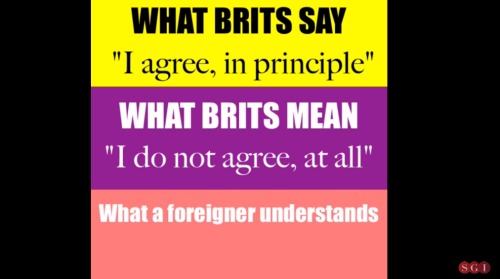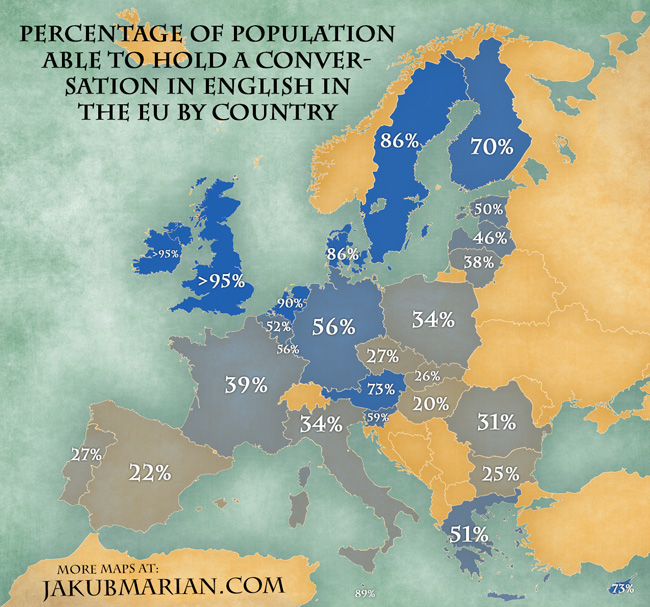
In 2006 it was stated in "English Worldwide", a book by Professor David Crystal, that there were approximately 400 million native speakers of English. In addition, Crystal said that there were 400 million speakers of English as a second language.
Furthermore, there were around 600 - 700 million English as a foreign language speakers. So, that's clearly over 1 billion people that could communicate in English to some extent. Those figures are also almost 10 years old, so we can surely say that those numbers of speakers have grown in the last decade.
So, how many people speak English in the world in 2015? We can estimate that there are definitely above 1.5 billion speakers of English globally.
In 2015, out of the total 195 countries in the world, 67 nations have English as the primary language of 'official status'. Plus there are also 27 countries where English is spoken as a secondary 'official' language.
Look at this cool map of people who can have a conversation in English around the European Union...

(Source: Jakub Marian - Check out his book on English Pronunciation too)
That's a LOT of people speaking English in the EU, isn't it?
So, it's fair to say that at some point in your life you will probably meet people that speak better English than you, even if they are non-native speakers, never mind mother tongue English speaking natives. Just look at the amount of non-native speakers who work at our English school in London, but speak fluent English.
That's why your journey to learn English never stops because the higher you go and more advanced level that you speak it opens up more and more complexities of meaning and understanding of the language.
English is possibly the world's most accessible language due to its massive presence in films, TV and the internet. English grammar is also quite easy to learn to start with when you are a beginner compared to other languages. However, at the top level of near fluency in English things get quite difficult.
English people are famous for their politeness and this is reflected in the language, too. Look at the video examples below of what British people say (in a polite way, so as not to appear rude or aggressive) and what they actually really mean. It's difficult to understand properly if you are a non-native speaker, isn't it? Of course, these videos are meant to be funny, BUT there is a lot of truth in what they say, too! 😊
Episode 1 - What Brits say and what they mean: I agree in principle
That's a good example of subtle Business English, isn't it? Have you ever had a passive-aggressive boss who gave instructions like that?
Episode 2: It really doesn't matter
Episode 3: Let's meet for a drink sometime
If you want to learn excellent English and get a real deep understanding of the nuances of the language, why not try 1-2-1 English classes with us in London? There are lots of advantages of private English lessons that you may not have considered before.
Episode 4: I would suggest...
Episode 5: I have a few comments
10 reasons to choose SGI
With so many English language schools out there, it can be difficult to decide which one to choose. Here are 10 fantastic reasons to study English in London at SGI. Of course we can think of lots of reasons why people should choose us, but here are just a few of them...
Sources:
Crystal, David (2006). "Chapter 9: English worldwide". In Denison, David; Hogg, Richard M. A History of the English language. Cambridge University Press. pp. 420 439. ISBN 978-0-511-16893-2.
MAP: jakubmarian.com http://jakubmarian.com/map-of-the-percentage-of-people-speaking-english-...

